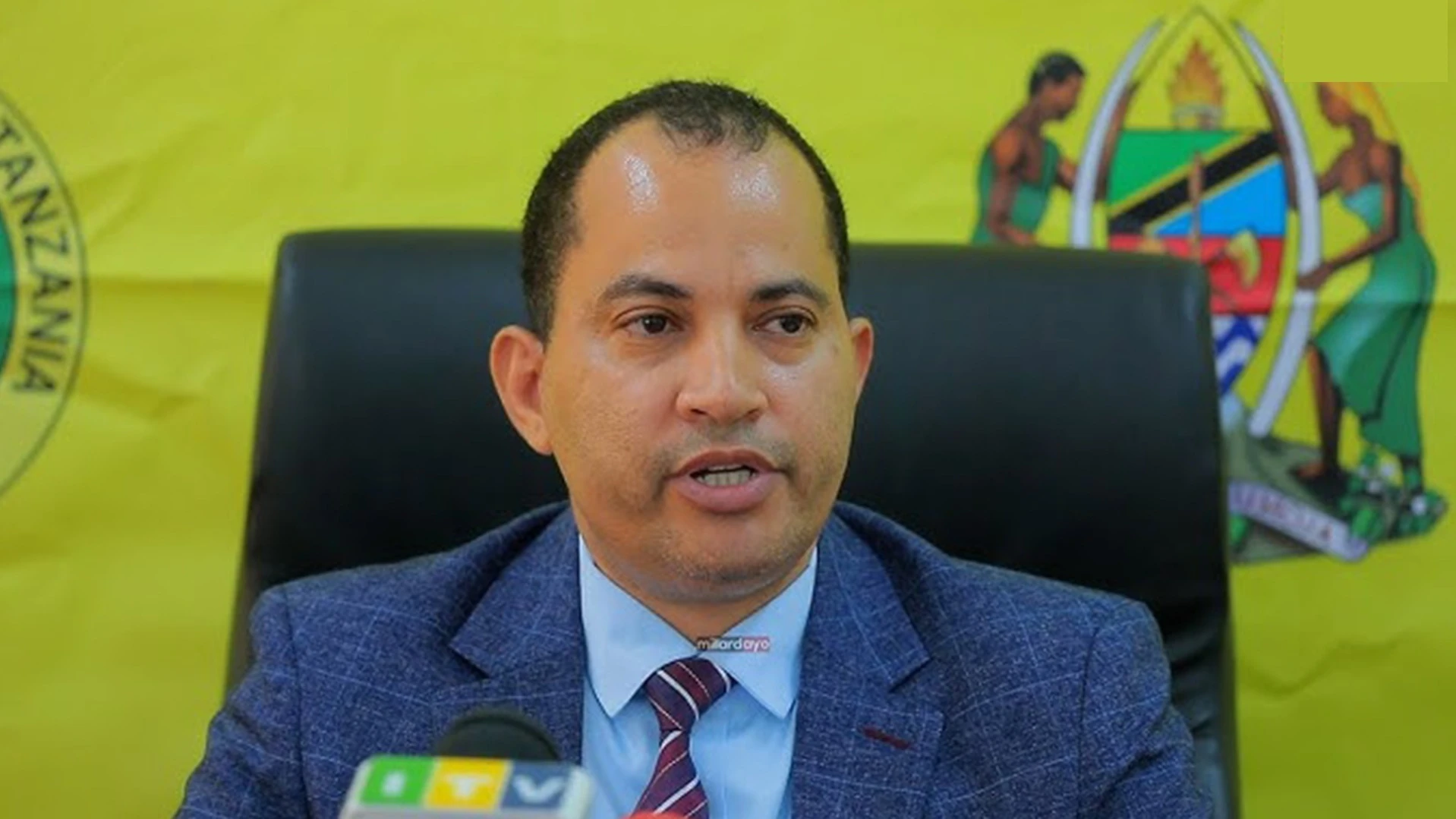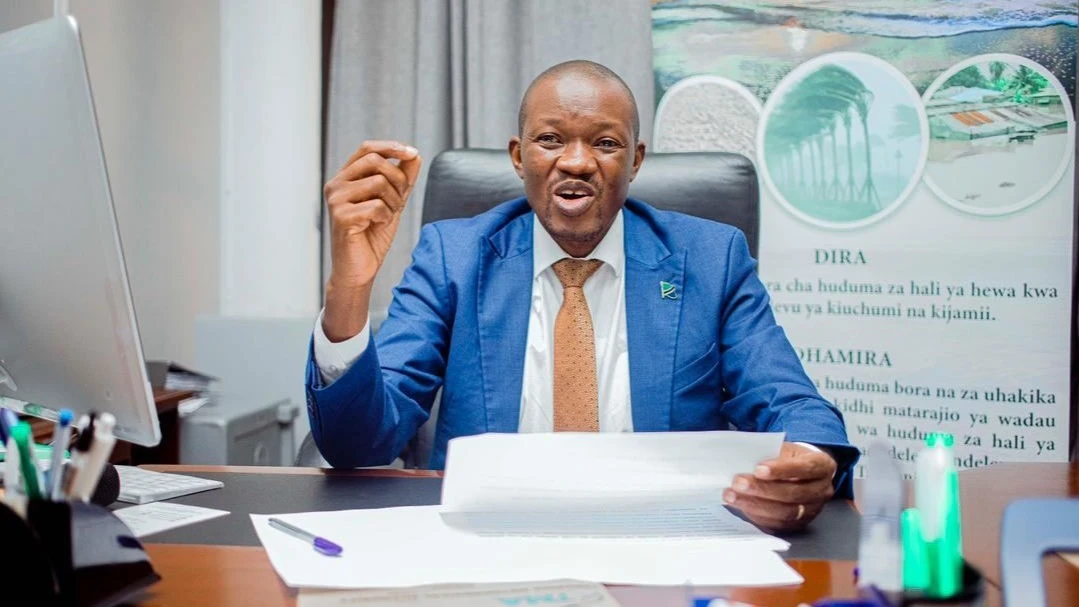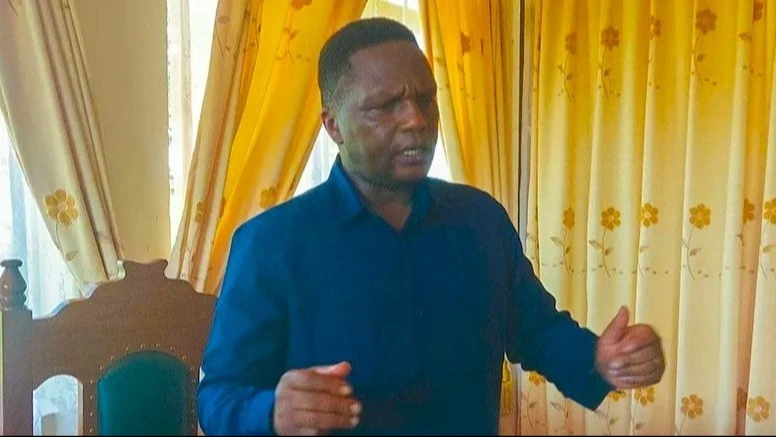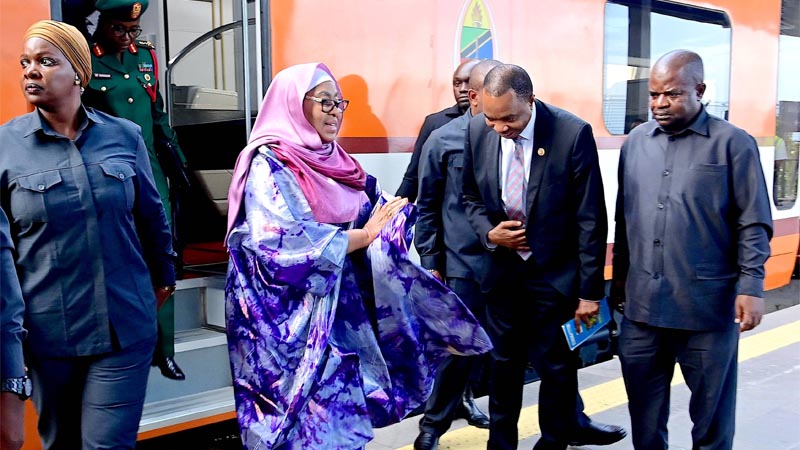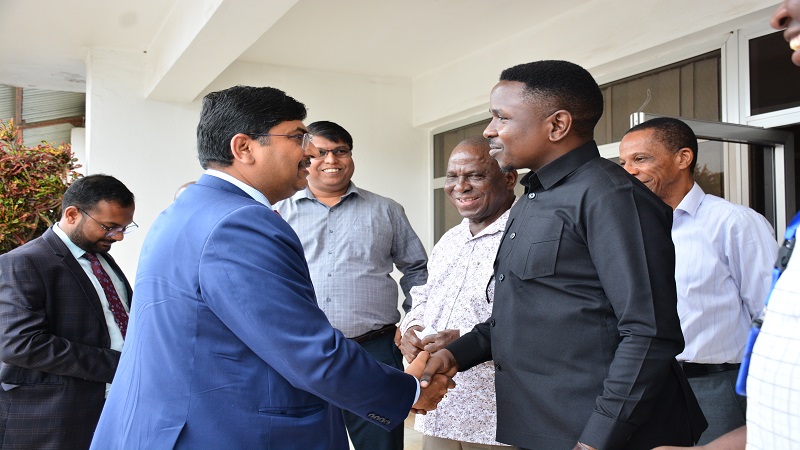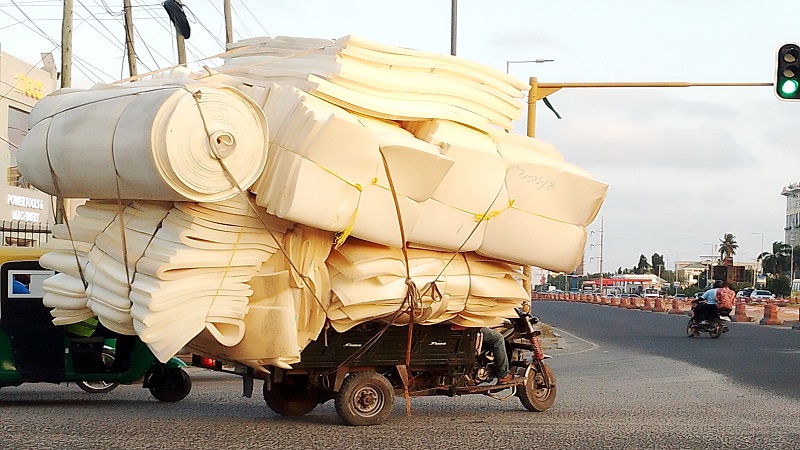Tanzania and Iran sign historic MOUs, to mark a new era of economic cooperation
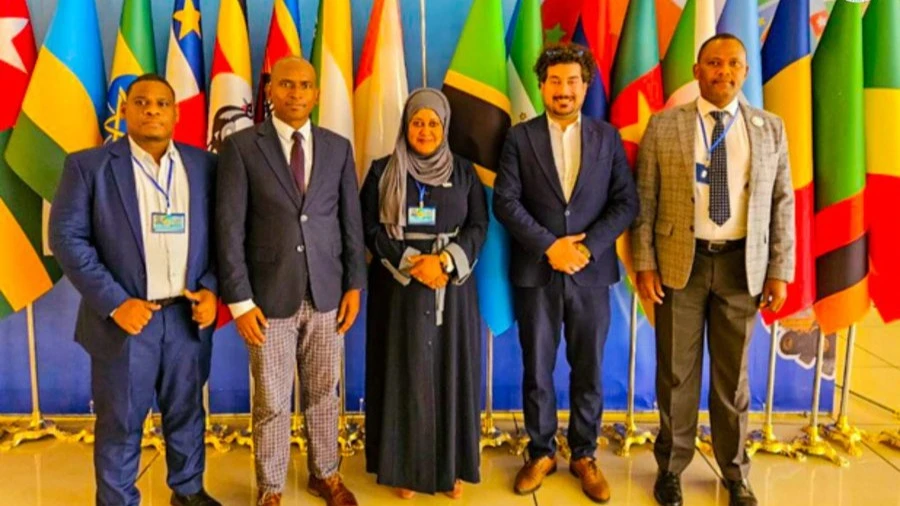
IN a significant diplomatic move, Tanzania and Iran have solidified their relationship by signing seven Memoranda of Understanding (MOUs) during the fifth Joint Permanent Commission (JPC) meeting held at the Julius Nyerere International Convention Centre in Dar es Salaam.
This historic meeting took place on October 17, 2024, sixteen years after the last JPC meeting convened in Tehran, marking a renewed commitment to cooperation between the two nations across various sectors.
Tanzania’s Director of the Department of Middle East Affairs, Abdallah Kilima, emphasized the priorities discussed during the meeting, which included investment, energy, oil and gas, technology, security, and defense. These sectors are seen as critical to Tanzania's ambitions to enhance its economic landscape and attract foreign investment. As both nations navigate the complexities of global economic dynamics, their partnership could yield benefits in addressing local challenges and promoting mutual growth.
The Iranian delegation, led by Agriculture Minister Golamreza Nouri Ghezelcheh, included 40 government officials and an equal number of private sector representatives, underscoring Iran’s serious intent to engage with Tanzania. The discussions encompassed vital topics such as agriculture, fishing, and business, with two Iranian businessmen expressing plans to invest between $40 million and $70 million in Tanzania. This potential influx of capital could be pivotal for Tanzania's agricultural sector, which is a significant part of its economy.
Tanzania's Minister of Foreign Affairs, Mahmoud Thabit Kombo, highlighted that economic diplomacy was the primary focus of the meeting. He pointed out that President Samia Suluhu Hassan's government has made strides in facilitating smoother interactions between the two countries. The emphasis on economic diplomacy indicates Tanzania's strategic shift towards fostering international partnerships that can bolster its economic growth while navigating a challenging global economic landscape.
While the MOUs represent a hopeful step forward in fostering economic cooperation, Tanzania's existing financial obligations to Iran complicate the picture. An analysis from 2022 revealed that Tanzania owes Iran approximately Sh1.48 trillion, making it the nation with the highest outstanding debt to Iran. This debt, which has accumulated over several decades without being serviced, stems from a credit agreement dating back to the late 1970s and early 1980s for the importation of oil.
The context of Iran's growing engagement with Tanzania is multifaceted. In recent years, Iran has ramped up its diplomatic efforts across the globe, particularly in Africa, to counteract the effects of U.S.-led sanctions. Tanzania, with its non-alignment policy and its position as a significant player in sub-Saharan Africa, presents a strategic opportunity for Iran. The growing ties between the two nations could enable Iran to bolster its influence in the region while offering Tanzania the potential for economic support and development.
The geopolitical landscape in Africa is undergoing significant changes, especially with the rise of several military-led governments in the Sahel region. Iran has capitalized on these shifts, establishing connections with leaders in Mali, Burkina Faso, and Niger, who are distancing themselves from Western powers. Iranian President Ibrahim Raisi's recent outreach to African leaders, where he praised their resistance against colonialism, underscores Tehran’s efforts to solidify its alliances in a region that increasingly seeks alternatives to traditional Western partnerships.
For Tanzania, the potential collaboration with Iran, especially in oil and energy, could represent a vital opportunity. However, the ongoing sanctions on Iran create uncertainty about the feasibility of such ventures. The complexities of international relations mean that Tanzania must navigate its diplomatic strategies carefully, balancing the opportunities presented by Iran against the risks associated with partnering with a country under international scrutiny.
Moreover, the implications of these ties extend beyond immediate economic benefits. The increasing cooperation between Tanzania and Iran could prompt shifts in regional dynamics, potentially affecting relationships with Western nations. As Tanzania deepens its engagement with Iran, it may face scrutiny from Western powers concerned about Iran’s activities and influence in the region.
The prospect of opening a Tanzanian embassy in Tehran, as mentioned by Deputy Minister of Foreign Affairs Ambassador Mbarouk Nassor Mbarouk, further signifies the potential for a deepened bilateral relationship. This move could pave the way for enhanced diplomatic exchanges, fostering an environment conducive to collaboration in various sectors.
While the signing of the MOUs is a significant step forward, it is essential to approach this new partnership with cautious optimism. The economic and diplomatic landscape is fraught with uncertainties, and Tanzania must weigh the potential benefits of its collaboration with Iran against the backdrop of its existing financial obligations and the broader geopolitical environment.
As the global economic landscape continues to evolve, Tanzania’s efforts to attract foreign investment and enhance its economic standing could hinge on the success of its relationship with Iran. The commitment to cooperation in critical sectors such as energy and agriculture aligns with Tanzania’s broader development goals, offering a potential pathway to greater economic stability and growth.
Behold, the recent MOUs signed between Tanzania and Iran represent a pivotal moment in their diplomatic relations, reflecting a shared commitment to cooperation in various sectors. As both nations move forward, the implications of these ties will likely reverberate across the broader geopolitical landscape, shaping Tanzania's future as it seeks to navigate the complexities of international relations and enhance its economic standing. The road ahead may be challenging, but the potential for mutual benefit creates a foundation for optimism in this evolving partnership.
However, not all observers view this collaboration favorably. Critics argue that aligning too closely with Iran, a country often criticized for its human rights record and regional provocations, could expose Tanzania to reputational risks.
Experts caution that the partnership could complicate Tanzania’s relationships with Western powers, which are concerned about Iran's influence in Africa, especially amid ongoing sanctions and geopolitical tensions. This concern is particularly relevant given the recent push by Iran to strengthen ties with countries in the Sahel, where a series of military coups have led to a distancing from Western influence.
Despite these critiques, several East African countries have successfully engaged with Iran, demonstrating that there can be mutual benefits in such partnerships. For example, Kenya has established a growing economic relationship with Iran, particularly in trade and agriculture. The two countries have signed several agreements to enhance cooperation in areas such as food security and technology transfer. Iran’s agricultural technologies and investments have been seen as critical in bolstering Kenya’s agricultural sector, which is essential for the country's economy.
Similarly, Uganda has also fostered a cordial relationship with Iran, focusing on sectors like agriculture, trade, and energy. Iranian companies have invested in Ugandan agriculture, particularly in developing irrigation systems and agricultural machinery, helping to boost productivity in a nation heavily reliant on farming. The cooperation has been beneficial, providing Uganda with access to Iranian technology and expertise while enhancing food security in the region.
As Tanzania charts its path with Iran, it can draw lessons from its East African neighbors. A carefully managed relationship that emphasizes economic cooperation while being mindful of international scrutiny could yield significant benefits.
By focusing on mutual interests, such as investment in renewable energy and infrastructure development, Tanzania can enhance its economic landscape without jeopardizing its diplomatic standing.
The evolving partnership between Tanzania and Iran is poised to unlock new opportunities in East Africa. If managed wisely, this collaboration can serve as a model for cooperation that transcends regional and ideological divides. As both nations embark on this journey, the potential for growth and development appears promising.
Notably, Tanzania has already seen a substantial boost in its market presence in Iran, with exports to the country increasing by 35% during the 2021/22 fiscal year. This upward trend underscores the tangible benefits of their partnership, positioning Tanzania for greater economic engagement in the region and beyond.
Both nations stand at a crossroads, and their commitment to fostering a robust partnership could not only reshape their futures but also contribute positively to the broader African landscape. In a world where economic alliances are crucial for development, the Tanzania-Iran partnership could be the key to unlocking new horizons of prosperity and progress for both nations.
Top Headlines
© 2025 IPPMEDIA.COM. ALL RIGHTS RESERVED












